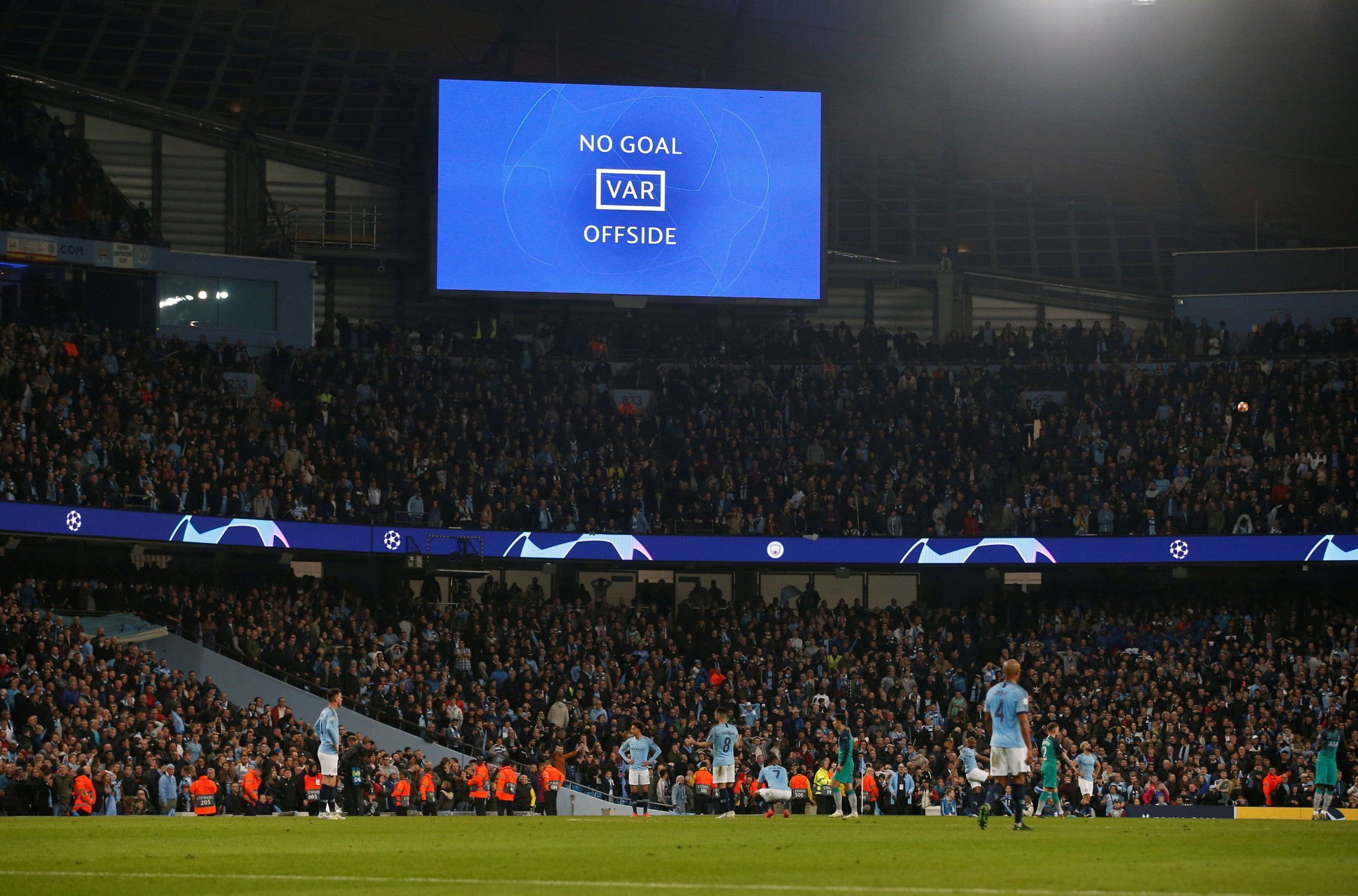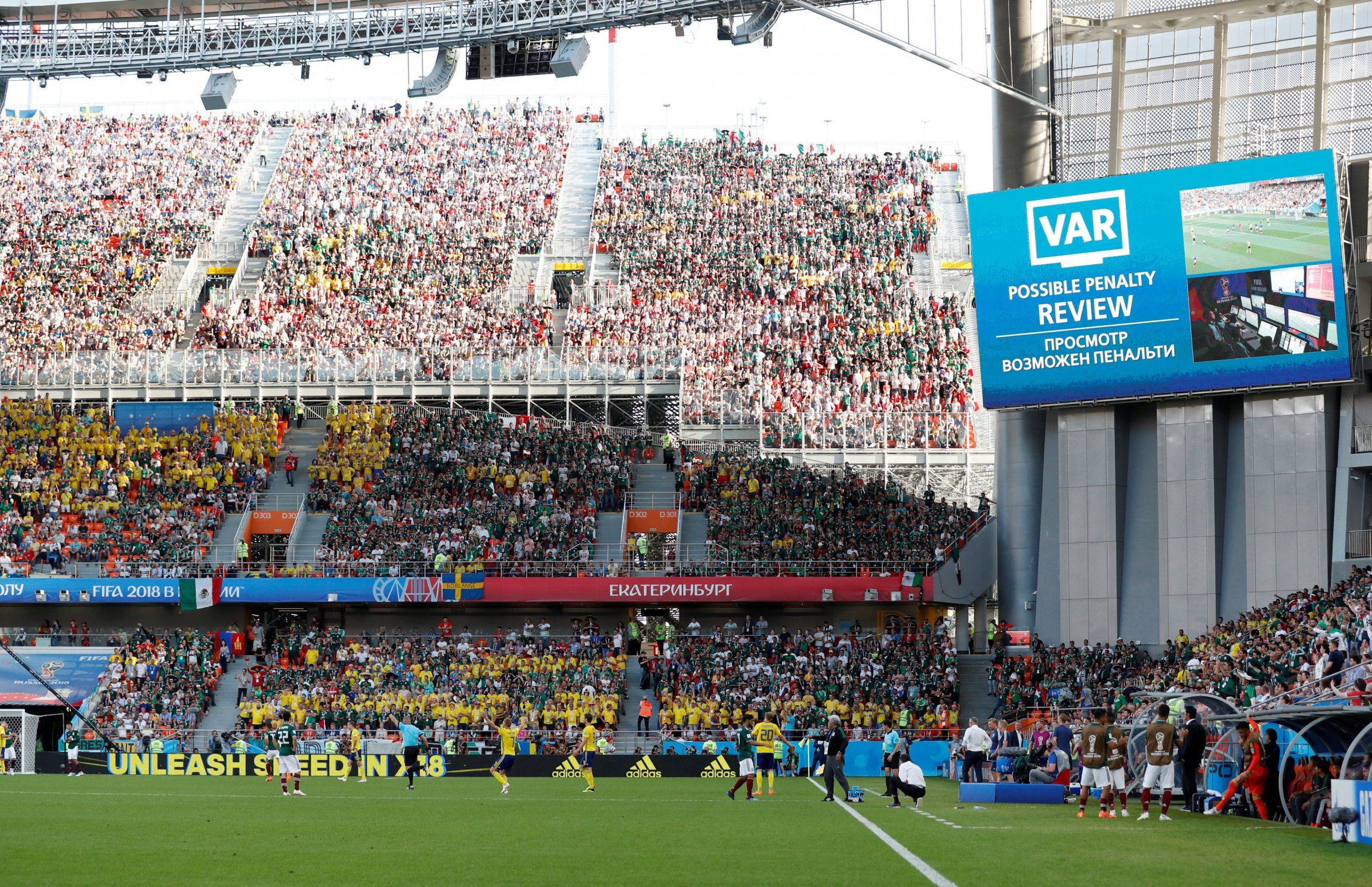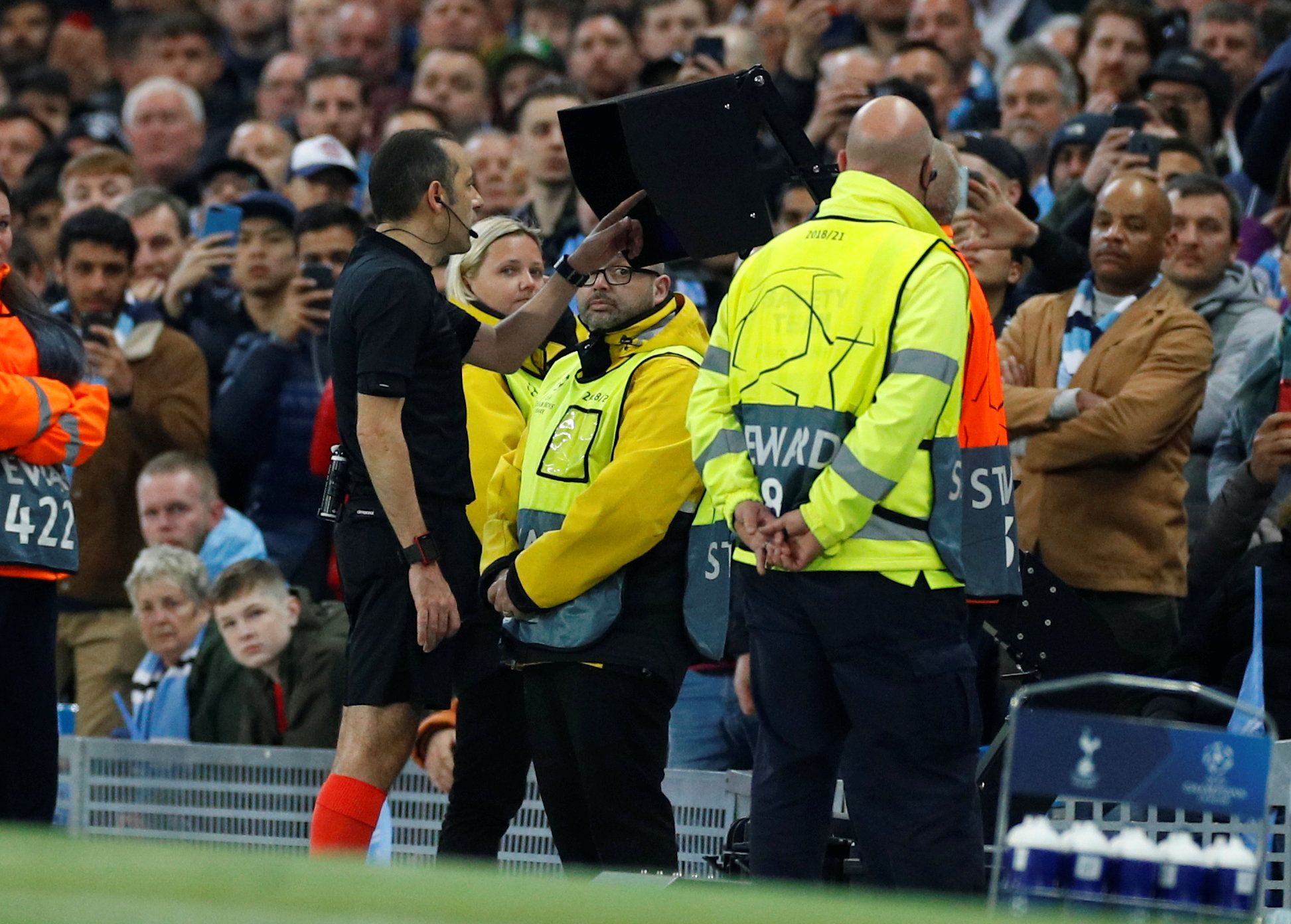[ad_pod ]
Another Champions League night, another VAR controversy. And for a piece of kit heralded as the end of refereeing controversy it’s certainly not changed the game in the ways we imagined.
The dream of its advocates was 100% - or close to it - accuracy when it comes to the big calls and in my view it’s probably achieved that. I can’t think of any decisions in the knockout stages of this season’s Champions League that have been obviously wrong even after the intervention of VAR.
But it’s changed the game in two meaningful ways.
Knowable Faults
In each of the knockout rounds so far there has been a penalty outrage. Those given against Nicolas Otamendi v Schalke, Presnel Kimpembe v Manchester United and Danny Rose v Manchester City. As it turns out, these are now ‘letter of the law’ penalties. It’s clear that almost every journalist, ex-player and pundit feels as though these should not have been given, but we’re now into the territory of claiming that the law is unjust - not its application.
Something similar happened at the World Cup in 2018. Shirt pulling at corners was clamped down upon heavily in the most part despite the fact that defenders are very used to getting away with it. In the end, though we’d mostly all agree that stamping this out is a good thing for the game. It can work both ways.
Thing is, when you zoom in on anything close enough it no longer looks as clean and shiny as it used to. The vast colonies of bacteria nesting on a cheese rind are unseen until you look at it forensically - by which point it becomes infinitely less appetising.
But pre-VAR we created our own culture of dissecting a referee’s performance based on slo-mo replays and fractional offside calls. In that context - one which will never change - it’s probably right to err on the side of giving the decision-maker the chance to ensure he’s happy with direction in which he points. And when these are binary calls deciding who wins and who loses, the right call is always better than the wrong one.
What we have to accept now is that the rules of the game have changed; now banned are things you usually get away with thanks to the limits of human perception. Not as a direct result of VAR (because the laws haven’t really changed much), but as an indirect consequence of the fact that such fouls are now visible in real-ish time.
But it’s akin to police powers to tap phones: no one would say that the use of this technology should be disallowed in the race to catch criminals and terrorists.
Monetising Passion
But where VAR really does need a rethink - and I accept I’m saying nothing new here - is inside the stadium.
It’s been said before that match-going fans are the ones who pay the most money and are the ones who are the most in the dark about the decisions being made. There are no replays to watch like those at home are seeing, just a screen to coldly remind you your fate hangs in the balance.
In a way, that’s not the outrage. Or at least, that’s only part of it. What’s really outrageous is the fact that in almost every way, fans in the ground are further away from the action than those on their sofas. At home, you have access to replays, expert comment and analysis (whether you like it or not), social media reaction and match stats. Not only don’t you have that in-stadium, but don’t have it until you’re far enough away from the ground to get phone signal.
But forget that matches cost so much money and focus on the fact that football’s powers that be sell the game around the world based not on the skill of the players but, increasingly, the passion of the fans: a group of people whose data can be collected and whose love can be monetised. Best of all, they are loyal to their club in a way that no other brand can dream of.
But paradoxically, now more than ever fans are playing a pivotal role in the action. A VAR decision isn’t like a normal offside. You don’t begin to celebrate before catching sight of a linesman’s flag. You celebrate a goal, the stadium announcer calls the goalscorer’s name over the loudspeaker and the scoreboard chalks another one up. Then that very screen silently but surely calls a review. But that’s what’s exciting for those at home. Human joy followed by human despair played out on screen like Big Brother with 55,000 housemates.
And in an era when fan passion is being monetised like never before, in order to make money for men rich enough to buy football clubs in the first place, that’s a really sinister thought.
The baying hordes watching on TV screens around the world used to craw at the gladiators on the stage. Now the whole arena is part of the game, and the game is a drama made for TV.



